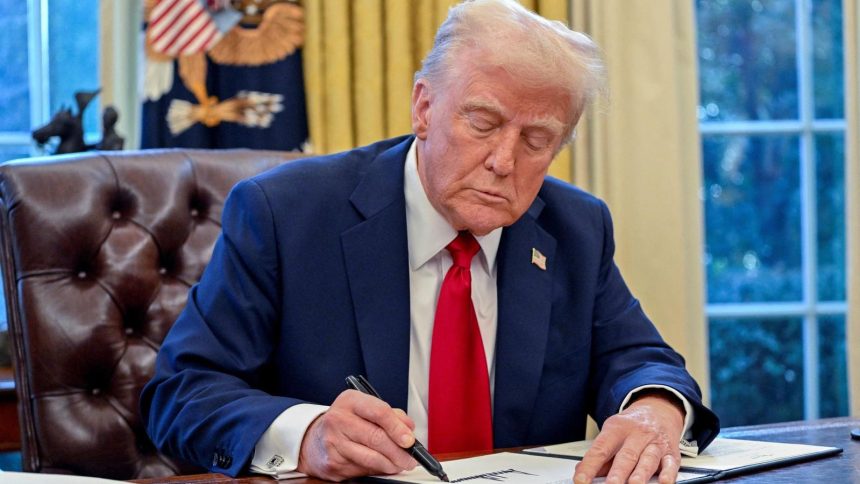President Donald Trump’s proclamation of February as Black History Month in 2025 marked a stark departure from the pronouncements of his first term. While maintaining the tradition of recognizing the contributions of Black Americans, the 2025 proclamation was noticeably shorter and omitted explicit references to historical cornerstones like slavery, the Civil Rights Movement, and landmark civil rights legislation – elements prominently featured in his earlier pronouncements. This shift in tone occurred against a backdrop of escalating attacks by the Trump administration on Diversity, Equity, and Inclusion (DEI) initiatives across various sectors, including federal agencies, the military, and even corporate America.
The contrast between Trump’s 2025 proclamation and those of his first term is significant. Earlier proclamations acknowledged the struggles faced by Black Americans, emphasizing the importance of learning from their history. For instance, his 2017 proclamation recognized the “toil and struggle” and stressed the “importance of teaching and reflecting upon” African American history. In 2018, he recognized the “egregious discrimination and bigotry” faced by Black Americans. The 2019 proclamation opened with a historical account of the slave trade’s origins in the American colonies. These earlier statements stood in stark contrast to his later actions and rhetoric, which included criticizing the teaching of critical race theory and issuing executive orders aimed at dismantling DEI programs.
The 2025 proclamation, while acknowledging the contributions of prominent Black figures like Frederick Douglass, Harriet Tubman, Justice Clarence Thomas, and Tiger Woods, lacked the historical depth and acknowledgment of systemic struggles present in earlier proclamations. This shift coincided with a broader attack on DEI initiatives by the Trump administration. Executive orders targeting DEI programs in federal agencies and the military, coupled with Trump’s public criticism of such initiatives, signaled a major policy shift. Furthermore, reports emerged indicating the Defense Intelligence Agency’s intent to pause events and activities related to Black History Month and other identity-based observances, including Pride Month and Martin Luther King Jr. Day. This action further underscored the administration’s move away from recognizing and celebrating diversity.
Trump’s justification for dismantling DEI programs centered on the claim that they constituted “illegal and immoral discrimination.” This rhetoric was amplified through his pronouncements on social media and in press interviews, where he frequently linked DEI initiatives to negative outcomes, often without substantiated evidence. One such instance involved the fatal collision of an airplane and helicopter in Washington, D.C., which Trump baselessly attributed to diversity hiring practices within the Federal Aviation Administration (FAA). He cited the FAA website’s language on diversity and inclusion as evidence, despite the fact that this same language had existed on the website throughout his first term.
The Trump administration’s actions against DEI sparked a ripple effect across corporate America, with numerous companies scaling back their own DEI commitments. Major corporations like Target, Amazon, Meta, and Walmart either reduced the scope of their DEI programs or discontinued them altogether. While some companies cited changing legal and policy landscapes as the rationale behind these decisions, others, like Target, attributed their actions to years of data analysis. This trend indicated a broader shift in corporate approaches to diversity and inclusion, potentially influenced by the administration’s stance and the evolving public discourse surrounding these issues.
In conclusion, President Trump’s 2025 Black History Month proclamation, while superficially acknowledging the contributions of Black Americans, marked a significant departure from his earlier pronouncements. The omission of historical context and acknowledgment of past struggles, coupled with his administration’s aggressive dismantling of DEI programs, signaled a stark shift in policy and rhetoric. This shift had a ripple effect, influencing corporate America and sparking broader discussions about the future of diversity and inclusion initiatives in both the public and private sectors. The contrast between Trump’s earlier pronouncements and his later actions raises questions about the sincerity of his commitment to recognizing and addressing the historical and ongoing challenges faced by Black Americans and other marginalized groups.



